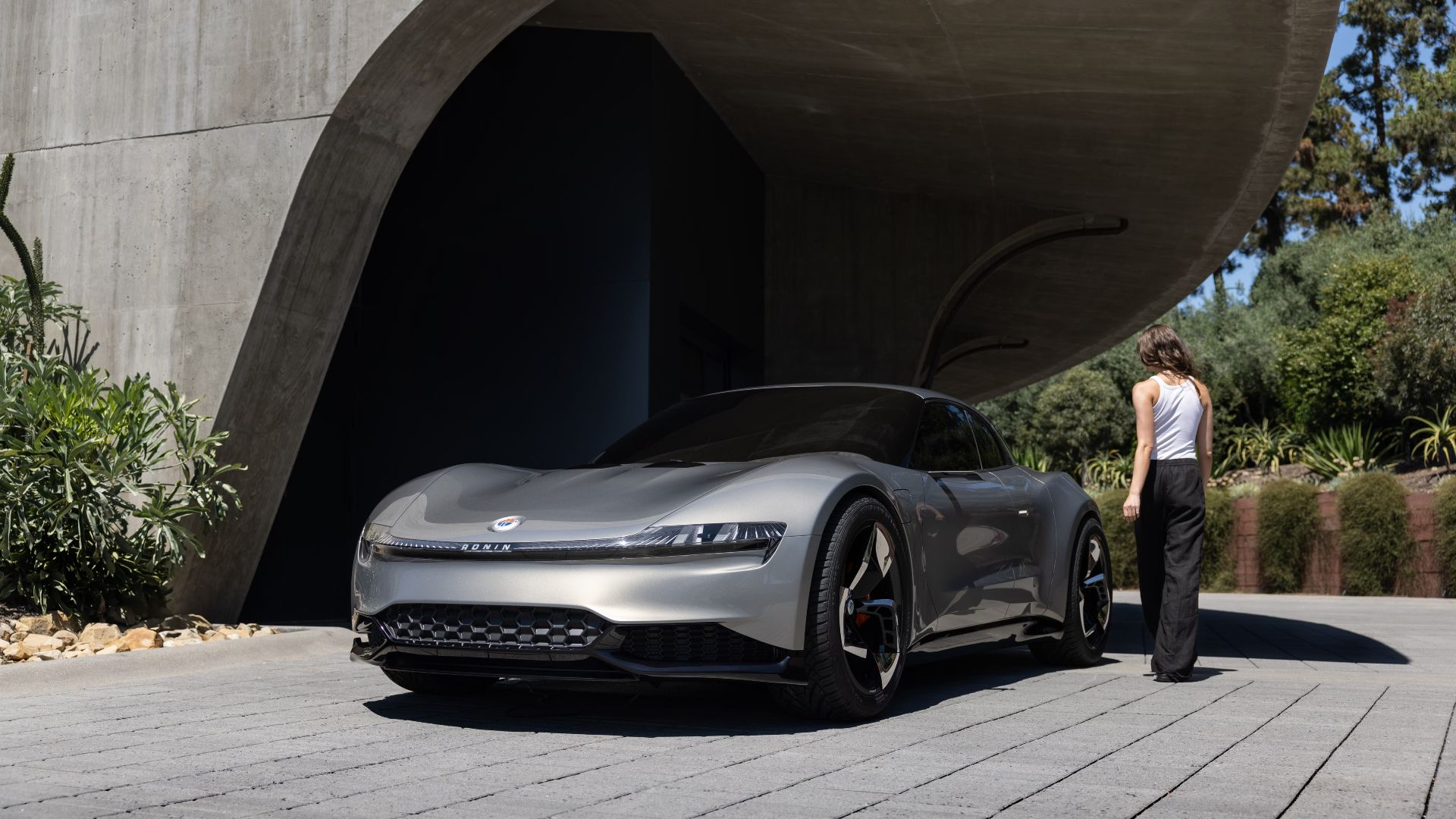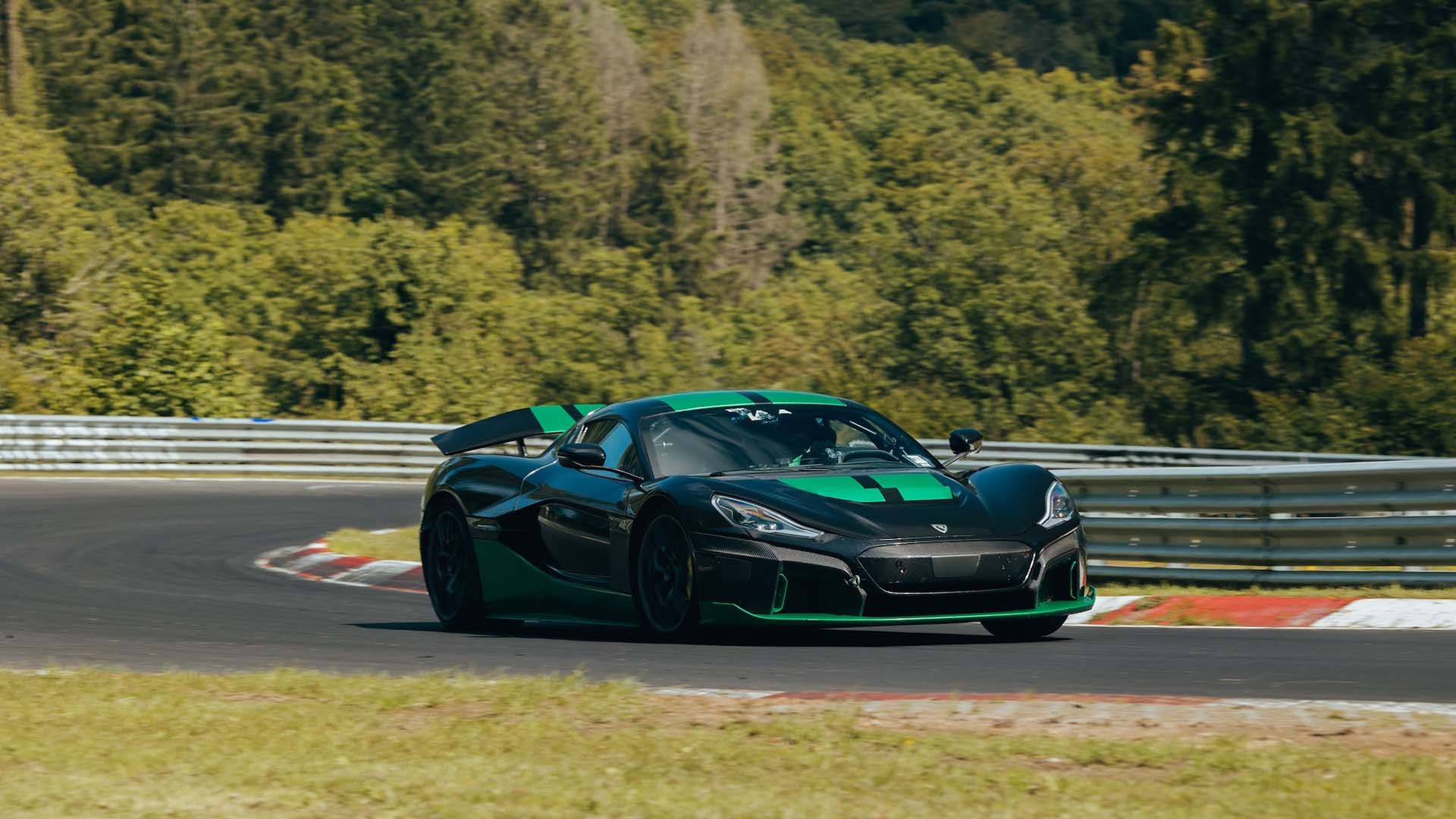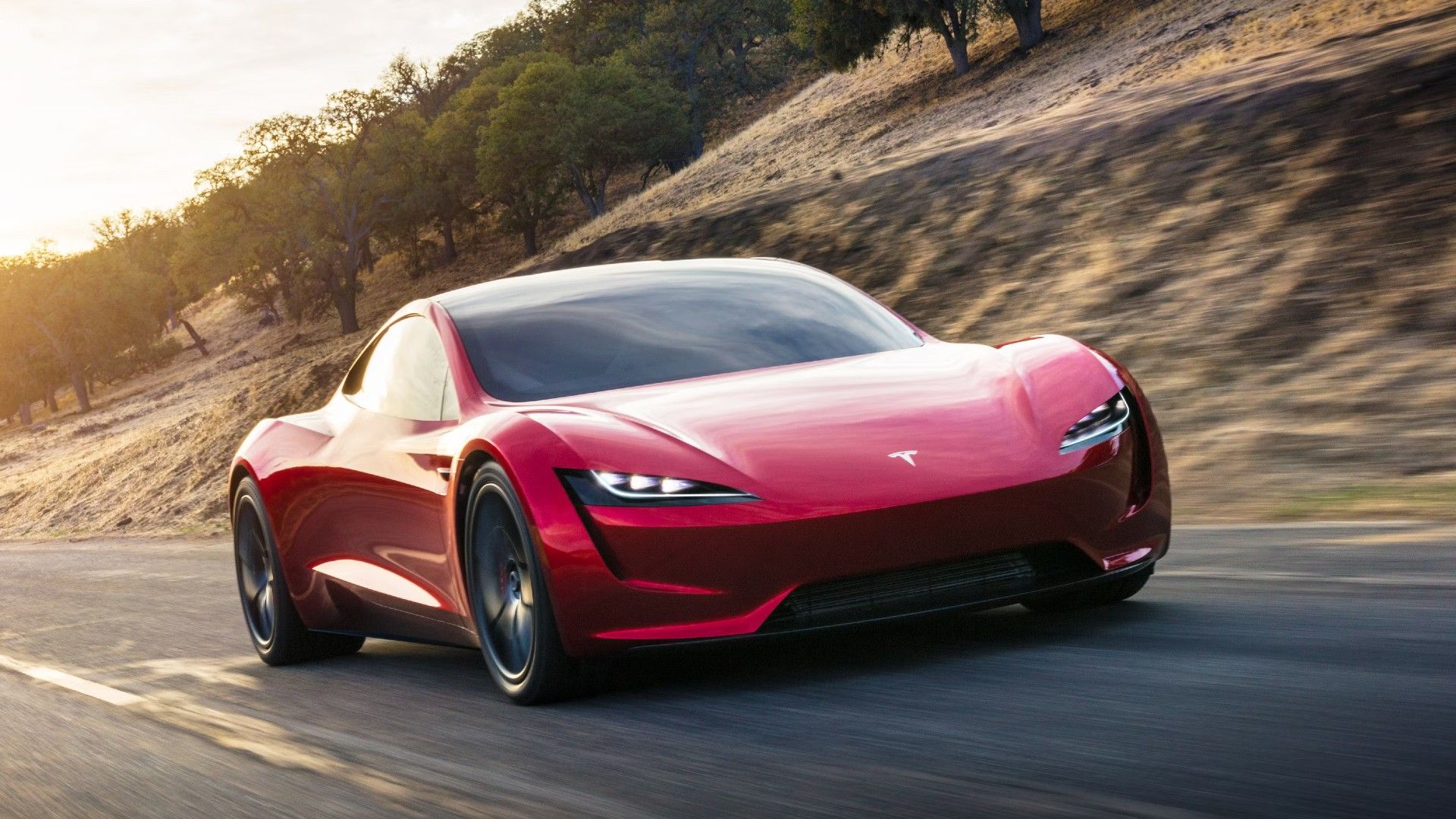Summary
- Electric sports cars are rapidly improving and are already achieving astonishing acceleration times. They offer a smooth driving experience and stability on the road, despite the drawbacks of heavy battery packs.
- EVs offer more power for the price compared to gas-powered sports cars. Some affordable electric options boast impressive acceleration times, making them a better value than most ICE sports cars.
- Electric sports cars and supercars are already making history, setting new performance records and surpassing gas-powered cars. Their speed and performance capabilities continue to improve, and they are already changing the present automotive landscape.
Electric sports cars! Some love them, some are still reluctant. Sure, they might not hold a candle yet to their gas-powered vehicles in terms of maximum speed, but they're surely getting there. And, while their quiet cabins might disgruntle the hardcore petrol-heads, some automakers, such as Rimac Automobili and Alfa Romeo, are already doing their best to give them some acoustic vigor.
As of now, we have yet to see their full potential unfold, considering they're still in their early twilight years. Nonetheless, we've already witnessed some downright astonishing acceleration times since they entered the market. Furthermore, electric sports cars have a knack for enhancing the overall driving experience. With motors mounted on two to four axles, a performance EV can take the road with remarkable smoothness, effectively minimizing the risk of turnover in the process. And, even though their heavy battery packs can negatively affect range and maximum speed, they do offer a great amount of stability on the road.
These factors, combined with the instant torque and volatile acceleration of e-motors, allow for a new level of comfort on the road, and ridiculous sprint times that are already marking the history books.
Making Elite Performance More Affordable
Although EVs are still significantly more expensive than their gas-powered counterparts, with an average transaction price of $53,469 as of July 2023, they do offer more bang for your buck when it comes to power. One only needs to take a cursory glance at the fastest gas-powered sports cars under $100,000 to confirm such claims. One of the best, and cheapest offerings in that bracket is the Nissan Z Proto Spec. The latter churns out 400 horsepower, and 350 pound-feet of torque courtesy of 3.0-liter twin-turbo V-6 engine, which all translates into a 0-60 acceleration time of 4.3 seconds. These specs come at a price of $53,990.
Comparatively, Chinese EV maker Neta recently introduced an electric convertible four-seater for only $27,000. The Neta Speedster dual-motor AWD, can sprint from rest to 62 mph in 3.7 seconds, for a price of 226,800 Yuan (which equates to $31,720 by today's exchange rates.) Of course, the price would be significantly higher in the US, but nonetheless a better value than most, if not all, ICE-sports car.
Moving on, MG Motor recently unveiled the specifications for its flagship roadster: the Cyberster. The latter boasts an acceleration time of 3.2 seconds, courtesy of 536 horsepower and 535 pound-feet of torque on its dual-motor setup. The price? An approximate $68,000 in the United States. The electric MG Cyberster, is thus more potent, yet cheaper than the $98,850 gasoline-powered Lexus LC.
Since the EV industry has an affinity for roadsters, let us talk about the Fisker Ronin. For an MSRP of $385,000, the four-door, electric five-seater, boasts a 0-60 mph time of 2 seconds. This level of speed is made possible a triple-motor, all-wheel-drive powertrain with 1,000 horsepower. Of course, the price is considerably heftier than the $80,000 we had anticipated. Nonetheless, the Fisker Ronin GT is on par with the $528,756 Ferrari SF90 Stradale in terms of acceleration, despite being a relatively modest vehicle.
Electric Sports Cars And Supercars Are Already Taking Over The Racetracks
Forget about the future, electric sports cars and supercars are already changing the present and making history. In May 2023, the electric Rimac Nevera shattered no less than 23 performance records in one day. Among the series of accolade, the Nevera notably achieved a 0-60 mph time of 1.74 seconds. Not only did this feat exceed the advertised specs, but it also remains unparalleled by pretty much every production car in history, EV and ICE alike.
It is crazy to think that it has only taken less than one decade of serious manufacturing for electric vehicles to surpass over one hundred years of gas-powered engineering. At the same time, it totally makes sense considering EVs are naturally expanding on more than a century's worth of mechanic expertise. It is also worth noting that electric sports cars are only getting better, and faster.
Rimac Nevera Performance Specifications
Electric Powertrain | Four electric motors |
Drivetrain | All-wheel drive |
Maximum Power | 1,914 horsepower |
Maximum Torque | 1,714 pound-feet of torque |
Acceleration (0-60mph) | 1.74 seconds |
Maximum Speed | 258 mph |
Today, the Mercedes-AMG One is the fastest production car around the Nurburgring. The German hypercar went around the 12.92-mile course in 6:35.183 minutes, courtesy of its 1.6-liter V6 engine, and its four electric motors. So, while a hybrid is currently holding the crown, pure EVs are topping their own record on a constant basis. The Rimac Nevera recently beat the Model S Plaid, to become the fastest production EV to go around the 'Ring, with a record time of 7 minutes and 5.298 seconds.
On the other hand, the Tesla Roadster 2.0 threatens to shatter these numbers in the future. Hyped by pompous talk from Elon and Co., the Roadster 2.0 promises to enter the market with a 0 to 60mph time of 1.9 seconds for its base model! We can only imagine what the top specs will be like for the Roadster, but if the claims are true, it will definitely revolutionize the automotive industry as we know it. The cherry on top is its estimated price of $200,000. Again, should the real MSRP be anywhere near that, the Roadster might effectively make seven-figure hypercars obsolete.
Your Favorite Sports Cars Are Becoming EVs
In light of the changing of the guard, and the upcoming regulations, many legacy automakers are switching to the e-segment. German manufacturer Porsche is already aiming to have 50 percent of its sales consist of EVs by 2025, on the way to 80 percent by 2030.
These lofty goals were partly encouraged by the success of the Porsche Taycan, and the Taycan Turbo S, which reigned over the Nurburgring for a period of time. These electrification plans also include an electric Porsche 718 within the next couple of years. Although the Porsche 911 might not get electrified in the future, CEO Oliver Blume affirms the 718 will borrow a lot of its charm, and parts, from the flagship sports car. "It will have the typical dimensions of a roadster. Always our EVs will be 100 percent Porsche, rather than being just oriented to EV competitors. When we made the Taycan, our benchmark was the 911. " added Blume. And, while the 911 is not part of any EV plans, we still got to see it with an electric powertrain, courtesy of Everrati.
Centenary sports car maker, Alfa Romeo, is also entering the EV fray with the 2025 Giulia EV. While the current twin-turbocharged V6, Giulia Quadrifoglio is a beast in its own right, with a 0-60mph time of 3.8 seconds, we can already know the electric version to surpass those numbers. Maserati is also planning to unleash six new EVs by 2026. Among the new line-up, we have the MC20 Folgore EV. In lieu of its current V6 engine, the latter will be powered by three electric motors, and an 83 kWh battery. Similarly, General Motors is also working on an electric Chevy Corvette, due by 2025.
Although Ferrari hasn't given us an exact date on when it will join the party, an electric GT is widely expected to arrive by Q4 of 2025. Unlike its peers, the Italian automaker is still planning to release ICE-powered vehicles beyond 2035. This approach is similar to that of Bugatti, which is also sticking to fossil fuel until the end of the decade. It will be interesting to see how far electric sports cars can go in the future. While issues of range, reliability, and lack of phonetic panache might still make them less desirable than ICE-powered vehicles, their potential appears to be limitless. We can only imagine how well E-sports cars will perform once solid-state batteries are properly introduced.



